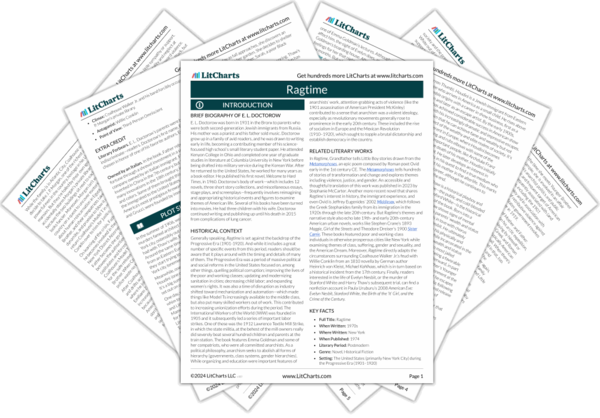Yet again, Coalhouse’s small group sets the example to emulate when it comes to equality, acceptance, and community. In the face of an uncaring society, they’ve taken care of each other, and their lives have been enriched by it. Coalhouse’s ironic joke about all people looking the same points back to the baseball game, where Father displayed an exquisite sensitivity to differences between the kinds of white people he considers his equals and his inferiors. Whiteness confers some advantages even to immigrants and laborers. But until everyone in society is treated equally, everyone will be trapped to some degree or other.


